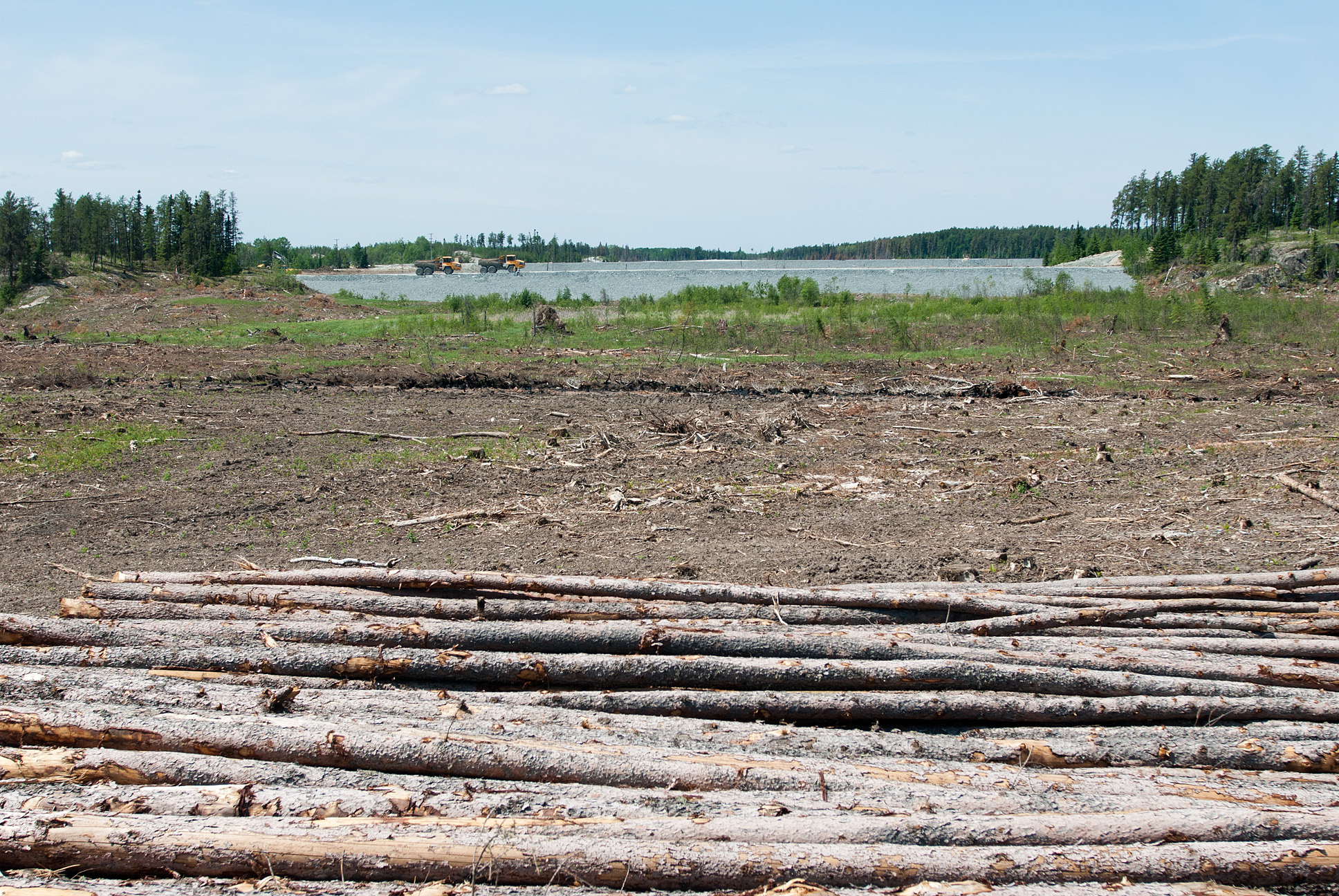Manitoba Environmental Licencing is Broken

Average Manitoban Not Served by Secrecy and Lack of Information
For most Manitobans, the Environmental Licencing process is broken. The administration of our Environment Act is failing a majority of people in this province, but there are ways to fix it.
That is the message I conveyed at a recent talk for the Manitoba EcoNetwork Water Caucus, hosted by the University of Winnipeg Sustainability Initiative.
Most people don’t know what the Environment Act actually says, or know how the licencing process works, and that’s fine. Ideally our environmental protection laws would be strong enough, and our legislation would be administered in such a way as to preserve the “commons”, the things we all need to share—clean air, fresh water, forests and wild lands that support biological diversity, even our climate. In an ideal world we wouldn’t need citizen watchdogs to monitor the commons. But realistically, we need to ensure that there are tools in place so that the citizen watchdogs can have a say, when required, in the actions that take place on the commons.
Anyone who plans an activity that will potentially impact our air, water, lands, or climate is required to file an application for an environmental licence. This application is usually placed in the Public Registry library, so the public can review it, and a public comment period ensues, so people can comment on it. This comment period, usually 30 days, is announced by advertisements in a print newspaper, as is required under the Environment Act. The Environmental Licencing branch distributes copies of the application to key departments in the government, whose mandate may require them to review the application. The departments commenting on the licence—the Technical Advisory Committee (TAC)—are the experts in the province, and know how a development will affect the commons. After the public and the TAC have submitted their comments, a licence is issued with operational conditions. The public and TAC comments are often attached to the licence, with brief mentions as to how the comments may have informed the licence conditions. At this point, anyone with concerns about this licence has 30 days to file an appeal of the licence to the Conservation Minister. Should the Minister dismiss the appeal, a final appeal is possible to the Cabinet.
In the last year, the Wilderness Committee has slammed head first into the failings at Environmental Licencing, and assembled a list of changes that are needed for the process to be an effective mechanism for Manitobans:
- easier access to public registry documents
- TAC comments available ahead of public comment period
- longer public comment period
- appropriate appeal process, such as to an independent eco-commissioner
- critical analysis, transparent decision making and process
Access to Public Registries
There are Public Registries located throughout Manitoba, mostly in libraries, but not all Public Registries receive the same files. As well, many of the documents that are filed in the Public Registry are not to be removed, and many applications are hundreds of pages long. This means anyone who wants to know what’s happening needs to visit the library and examine the documents themselves, or struggle with the laborious task of photocopying hundreds of pages, which include key color maps and multi-page spreadsheets that do not reproduce well. In essence, barriers are being created to limit an informed citizenry. We are in a digital age, with online access to most materials. The logical solution, a way to inform all citizens of changes to the commons, is to require environmental licence applications to provide the paper copy and a digital copy and publish all of these documents online as well as deposit them in the library.

The Technical Advisory Committee: Our Experts
Environmental licences can be quite technical. Impacts of a development on wildlife patterns, water drainage, or greenhouse gasses can be more complex than the average individual can understand. Because of this, the questions raised by the TAC create some of the most valued feedback about an application. The guidance that these public experts provide needs to be available to individuals as they are investigating a licence.
For example, in the case of recent licence applications for peat mining in Manitoba, the TAC consistently flagged greenhouse gas release as a major problem with peat mining. The public, though, was never informed of these concerns during the public comment period. This is not right. In simple terms, the TAC are experts that work for us, and we need their advice while we are voicing our opinions on a project—not just after all decisions have been made, as is now the case. This is a serious way in which the administration of our Environment Act is failing Manitobans. The solution is to publish the TAC comments at the beginning of the public comment period, as has happened in the past.
Longer Public Comment Period
For years, the Wilderness Committee has been pressing the government to extend public comment periods beyond 30 days. Licence application announcements are published in a print edition of a newspaper, and it may take several days before word gets out that there is a proposal. It often takes concerned individuals a few days to seek out expert advice on a project, a few days more to assemble background information, and another few days to announce a public gathering to discuss the issue with others that may be impacted.
Thirty days is not enough time to properly research and present an informed opinion on a project, especially one that is scheduled to run for five decades or more. In two recent peat mine licence applications, not a single public comment was received, and a couple weeks were lost due to office shutdowns over December holidays. A minimum of a 60 day public comment period would allow due process to occur.
Appeal to Whom?
When the Manitoba government issued an environmental licence for Tolko to plow a road through a provincial park in 2009, the Wilderness Committee appealed the licence. The appeal went to the Conservation Minister, who was also responsible for issuing the original licence. Why would the Minister change their mind? Then-Conservation Minister Stan Struthers tersely dismissed our appeal with no explanation. This case had to be taken to the courts, at great expense to the Wilderness Committee and to the Manitoba government, and it is still awaiting decision. In 2011, two peat mine licences were appealed, but again the appeal went to the Minister. On any large or contentious application, the Minister is going to be involved in the original licence decision, and it makes no sense to go back and appeal to the same decision-maker. The final level of appeal after this is to the Lieutenant Governor in Council, which is the long title for the Cabinet. The Cabinet includes the Minister who already twice issued a licence. Do you think the cabinet is going to reverse its decision?
The solution to this problem is an independent Environment Commissioner, such as exists in Ontario. This position would pay for itself in the long run, as environmental damage caused by inappropriate activity is costly to repair, and can have a negative impact on our health, which is also expensive.
Critical analysis, Transparent Decision-Making and Process
The overarching need is for the Environment Act to be administered so that it protects the commons. Too many decisions are ignoring the advice of our experts, and projects are being pushed through in an unseemly manner. The Manitoba office of the Canadian Centre for Policy Alternatives has been raising awareness about the Little Saskatchewan River in western Manitoba, and found that a recent irrigation licence was issued after a proponent had already installed all of the irrigation pipelines “through a series of temporary authorizations.” Similarly, in February 2012, San Gold Corporation was authorized to clearcut 98 hectares of public lands to build a tailings pond in eastern Manitoba, despite the fact that no licence for the tailings pond had been issued, and the public comment period had not even started. In 2009, Tolko’s logging road across Grass River Provincial Park was authorized, yet the TAC comments show all of the Conservation as well as Water Stewardship staff were opposed to the project. In 2011, peat licences were issued, despite the climate change branch of the government explicitly stating that the greenhouse gas release impact was severe and being understated by the proponent. Finally, every year since 2005, the government has been extending the environmental licences for logging corporations Louisiana-Pacific and Tolko in western Manitoba. Both of these licences were highly contentious when issued more than a decade ago, and have proven to be devastating to local woodland caribou and moose populations. Instead of having the public examine and comment on the operations of these licences, the government quietly approves them with no explanation. All of these activities lower the expectations of Manitobans, and leave them with the impression that our government is not administering the Environment Act to protect our commons.
A single problem with Environmental Licencing could be explained away as a mistake or human error. A multitude like I’ve just listed points to an ingrained systemic administration problem. It can be cured, as outlined above. Now we just need the Manitoba government to search for the political will.
------------------------------------------------------
Eric Reder - Manitoba Campaign Director


